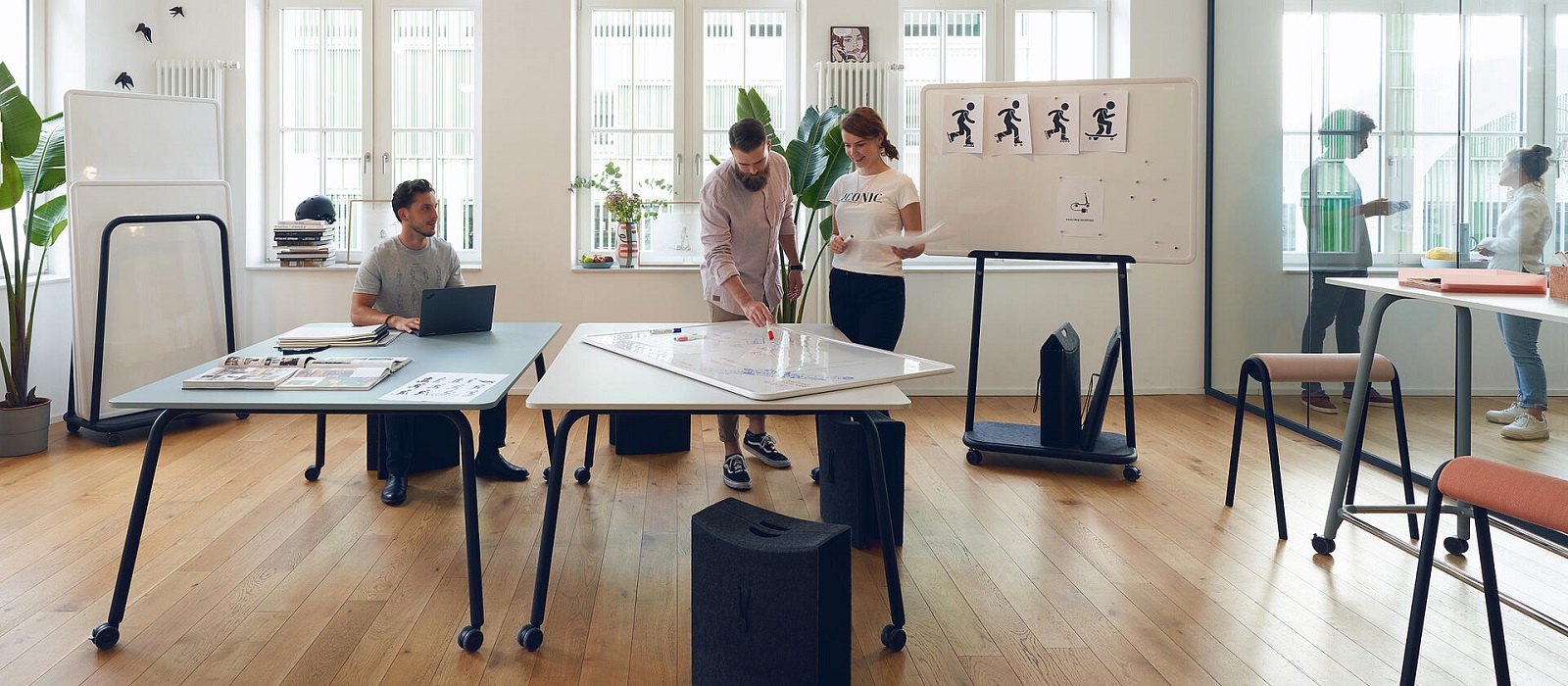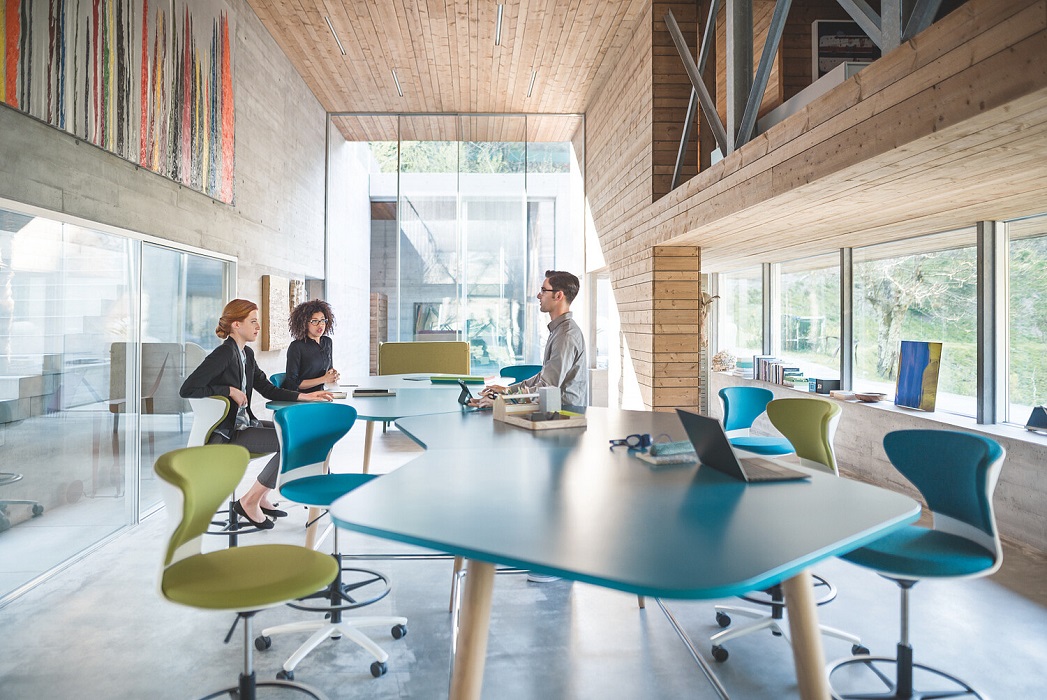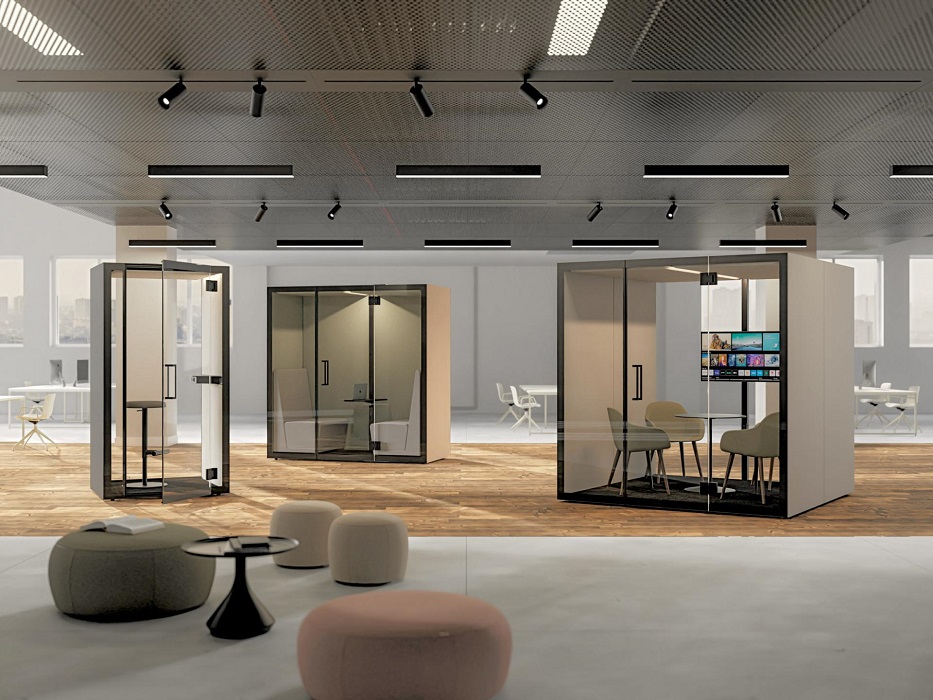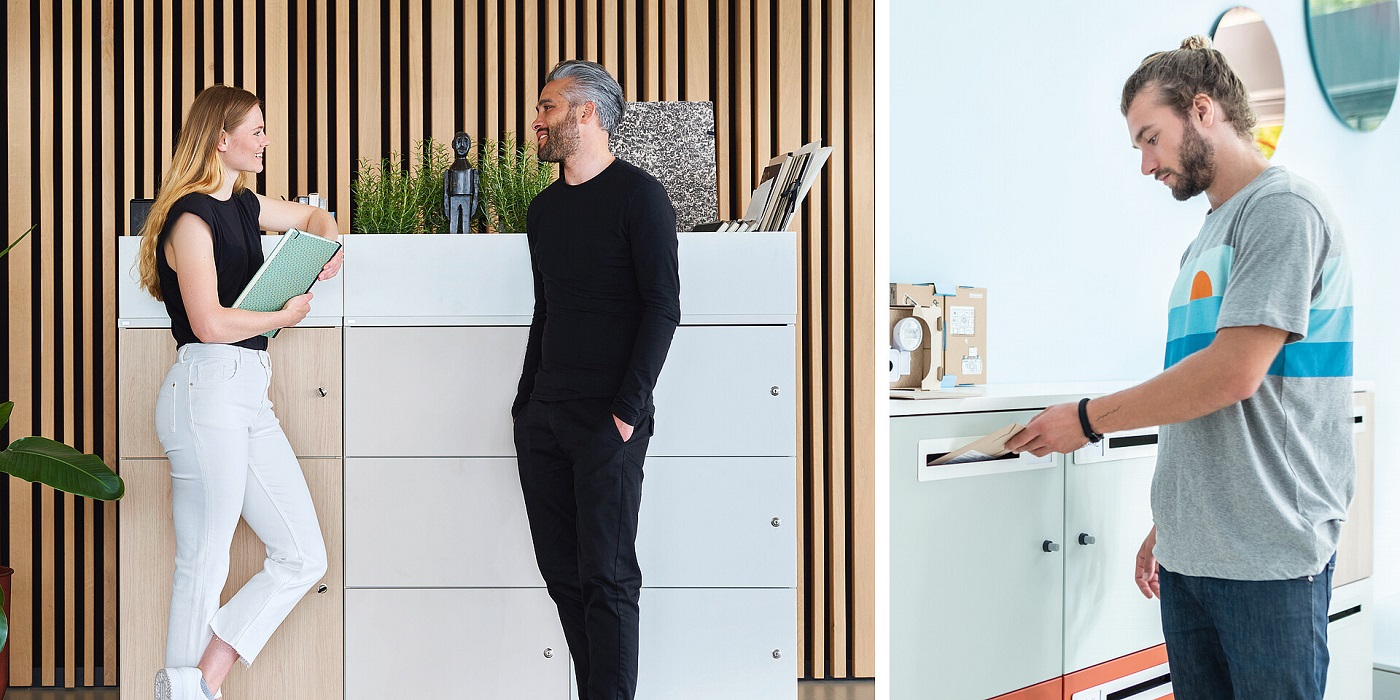
Workspace Design: office furniture influences work dynamics
Office furniture design plays a very important role because the environment that will be configured can greatly affect the working and relational dynamics of users.
How?
The physical characteristics of work spaces must be studied in detail not only for division into areas of expertise, but because through certain strategic arrangements it is possible to influence daily processes to the point of triggering and discouraging certain situations that are respectively advantageous and inconvenient for the company.
Layout and furnishing complements thus respond to different objectives, ranging from representing the corporate image through a particular aesthetic choice to responding to the needs and requirements that emerged at the pre-design stage.
How to organize the office for optimal business climate?
One of the dynamics that most influence business stability and success is the relationship between colleagues.
This aspect is extremely important for the success or failure of business processes, particularly those involving the team, as well as for living well at work.
Here, too, furniture design can play a significant role by setting up an environment that encourages spontaneous meeting and interaction.

How can the office be organized to foster good relationships and a sense of team ownership?
Sharing the same environment throughout the workday is not always a positive aspect of an optimal business climate. Within an office, especially an open space office, individual and team work must coexist, with very different activities and different organizational needs.
Fostering interactions therefore is not always necessary and fruitful, as there must be areas where the individual user can concentrate and is free from visual and noisy distractions.
Layout: space for interactions
The optimal design of the new office layout identifies three different situations:
- areas for individual work
- areas for team work
- transition spaces to promote spontaneous meeting and interaction.
Areas for individual work
Areas dedicated to individual work, as anticipated, need a quiet, silent, confidential environment. Work requiring concentration, such as design, analysis and data processing, is carried out here, so it is advisable to install individual workstations or with partitions (panels or partitions) and to pay special attention to the silence factor, which is decisive for users’ performance and productivity.
The creation of an appropriate space could include acoustic correction by installing sound-absorbing panels to divide the workstations and eliminate reverberation.
For conducting phone calls, on the other hand, the provision of a phone booth should be considered, which, due to its acoustically isolated structure, is able to create a private space within a larger environment.

Areas for teamwork
Areas designated for teamwork are not solely meeting rooms!
What a work group needs is a space to share that stimulates creativity. Informal and colorful furniture complements can configure very comfortable areas in which to relax and quietly engage in discussion, identifying solutions more quickly and innovatively.
In fact, furniture systems such as modular sofas and ottomans help to change posture from the desk, unconsciously encouraging a new approach, a new way of seeing things.
In addition, the inclusion of transportable whiteboards can prompt users to externalize their ideas and visualize the picture of the situation more clearly, facilitating the identification of solutions and corrective measures to be taken.
Passage spaces
Relatively small but of great importance are passage spaces.
They are always identified and designed to facilitate movement from one area of the office to another, but in reality they can take on much more important functions.
In fact, some of them, if carefully designed in strategic areas, can promote spontaneous meeting and interaction. This particular function can prove to be of primary importance in managing relationships among colleagues and thus in team building.

Sharing “jokes” unrelated to the pure work context helps strengthen the bond between people, unconsciously developing in them a strong sense of belonging to the team and thus to the company.
In addition, a peaceful corporate climate in which there are good relationships contributes to the well-being and productivity of all users.